500 Calorie Diet Plan: Benefits, Risks, and Sample Meals
Keeping a close eye on your calorie intake could be the catalyst you need to lose weight.

Image: Midjourney/ StyleCraze Design Team
The 500-calorie diet plan has been devised to help lose weight. It is a very restrictive plan where you only eat 500 calories a day, usually relying on meal replacements and supplements. It is mainly used for quick weight loss and is usually done with a doctor’s guidance. Doctors usually recommend this very low-calorie diet (VLCD) for individuals with obesity (BMI – over 30), whose health is at risk owing to the excess fat.
However, lactating and pregnant women are a big no for taking up this diet. This article explains what this diet is all about, its benefits, and its potential risks. Read on!
In This Article
What Is The 500 Calorie Diet Plan?
The 500 calorie diet is an extreme form of a very low-calorie diet, i.e., it is extremely low in calories
. It replaces the normal food routine with liquid supplements, meal replacement shakes, and bars for a specific period (1).
Having dietary supplements or meal replacements has become widespread in the US. According to the National Health and Nutrition Examination Survey, 2017– March 2025, over one-third of adolescents and nearly three out of five adults consume dietary supplements.
This restricted calorie consumption may help your body use the stored fuel source, i.e., fat. This, in turn, helps you shed pounds.
This is a type of 5:2 intermittent fasting plan that involves severe energy restriction for two non-consecutive days of a week and consuming 2000 calories on the other five days. This type of modified diet can fulfill 20-25% of energy needs on fasting days (2).
Lifestyle blogger Jaya Jha successfully lost weight by following a 5:2 calorie-deficit diet. She said, “Between September last year and May this year I lost 8+ Kgs from my peak weight (i).” However, she faced setbacks during vacations, holidays, and work trips. She considered this weight loss a significant milestone and aimed to maintain her current weight or lose more weight with the diet.
Studies showed that hypocalorici A very low-calorie diet with extremely low daily food energy consumption. Also known as semistarvation. intermittent fasting could help overweight and obese individuals lose weight. However, these studies are inconclusive, and more research is needed to confirm these findings (3).
What should your 500-calorie diet plan look like? Scroll down to find out.
Note: Before starting the 500-calorie diet, it is essential to consult a healthcare
professional. This diet is not suitable for everyone. So, follow this very low-calorie diet (VLCD) only under the supervision of a doctor or a nutritionist.
Key Takeaways
- The calorie intake should be limited to promote weight loss. This can be determined by calculating daily calorie needs and reducing it by 500.
- This very low-calorie diet plan includes protein-rich foods with a balance of carbs and healthy fats.
- However, it may cause nutritional deficiencies, the development of gallstones, and muscle loss so consultation with a dietician is advised.
A 500-Calorie Sample Meal Plan For Weight Loss
Creating a 500-calorie meal plan is essential to ensure you are getting the nutrients your body needs while staying within the calorie limit. As part of the 5:2 diet plan, you need to be on a low-carb diet for two days. But what exactly should you eat?
1. Breakfast
Breakfast Options | Amount | calorie count | |||
|---|---|---|---|---|---|
Decaffeinated tea or skimmed milk or black coffee without sugar | 8 ounces | 80 calories | |||
Small banana + ricotta cheese | 1 banana + 1 medium bowl | 255 calories | |||
Hard boiled egg + Wheat bread toast | 1 each | 140 calories | |||
Decaffeinated tea or skimmed milk or black coffee without sugar | 1 cup + 4 tablespoons + 1 date | 284 calories |
Tip:
If you feel hungry before lunch, you can drink a cup of green tea without sugar.
2. Lunch
Lunch Options | Amount | calorie count | |||
|---|---|---|---|---|---|
Salad with a light dressing | 1 medium bowl | 90 calories | |||
Blueberries and Greek yogurt | 1 cup | 122 calories | |||
Vegetable soup made with cabbage, spinach, broccoli, or any leafy vegetable | 1 cup | 80-100 calories | |||
Grilled chicken or fish + Grilled broccoli and carrot | 3 oz fish or chicken and ¼ cup veggies | 165-210 calories | |||
Lettuce wraps with fish/mushroom/chicken/tofu | 1 wrap with 2 oz fish/chicken/mushroom/tofu | 20-125 calories |
Tip:
Drink a glass of lukewarm water 20 minutes before lunch to avoid overeating.
3. Dinner
Dinner Options | Amount | calorie count | |||
|---|---|---|---|---|---|
Chicken or mushroom clear soup | 1 medium bowl | 50-100 calories | |||
Broccoli and grilled turkey/tofu tossed in a little chili garlic oil | 1 medium bowl | 165-215 calories | |||
Egg white omelet with mushroom and spinach | 2 eggs, 6 mushrooms, ½ cup spinach | 69 calories | |||
Stir-fried veggies with red bell pepper, carrots, broccoli, tofu, and beans | 1 cup + 1 teaspoon balsamic vinegar + chili flakes | 155 calories |
Tip:
Drink water, and if you feel hungry, have a glass of coconut water or unstrained vegetable juice.
This 500-calorie diet plan provides a balanced approach to maintaining essential nutrients while limiting calorie intake.
You can choose from these options and create an ideal, customized diet plan suitable for you. Make sure you consult your doctor and dietitian before starting this diet.
Alternatives For Dietary Restrictions
- Vegetarian/Vegan: Replace meat with other sources of protein such as lentils, beans, or tofu.
- Gluten-free: Choose gluten-free grains and starches like quinoa or brown rice.
Note:
If you follow a 500-calorie diet for a month, the results can vary depending on your starting weight and activity levels. On average, consuming 500 calories a day could lead to a significant reduction in body weight. However, this is a very low-calorie plan and should only be followed for a short period and under medical supervision.
For those wondering, “how much weight can you lose eating 500 calories a day,” let us clarify that it’s possible to lose up to 10-15 pounds in a month, though this is not advisable for the long-term, as such a restrictive diet may lead to nutritional deficiencies. Aim for long-term, sustainable weight loss through healthy eating habits and regular exercise.
What are the benefits of the 500-calorie diet? Find out in the next section.
Benefits
The main benefit of the 500-calorie meals is that they may aid in rapid weight loss. Following a VLCD may help revamp your metabolism.
A study, published in The American Journal of Clinical Nutrition, explored the effects of alternate-day fasting (ADF) on body weight, composition, and metabolic biomarkers in nonobese adults (4).
Over 22 days, participants fasting every other day lost an average of 2.5% of their body weight and 4% of their fat mass. While fasting insulin levels dropped significantly by 57%, other markers like glucose and ghrelin remained unchanged. Fat oxidation increased, particularly on the longer fasting day (36 hours), but participants reported persistent hunger, making long-term adherence challenging.
The researchers suggest incorporating a small meal on fasting days to enhance feasibility for extended periods (4). Thus, it is great for those who need to lose weight to prevent any health risks.
But what if you are on this diet even if you don’t need to? Or what if you are on a 500-calorie diet for three weeks or more without being supervised by a doctor? Is a 500-calorie diet healthy and safe in such a case? Find out in the next section.
Is 500 Calories A Day Healthy?
No, 500 calories a day is not healthy, especially if you are doing it without a doctor’s supervision for an extended period. Yes, you may lose some weight initially. But this is not sustainable as you may regain the lost weight once you go back to your regular diet.
Many people wonder, “What happens if I only eat 500 calories a day?” or “How much weight will I lose if I eat 500 calories a day?” While this diet can yield quick results, it comes with risks. This low-calorie diet can be mentally and emotionally taxing and lead to an unhealthy relationship with food.
A study, published in the journal Eat Behaviors, investigated the motivations, perceptions, and potential links between calorie-tracking app usage and disordered eating patterns. Analyzing data from 1,357 adults, the researchers found that 71% had used a calorie-tracking app, with 39% reporting current use (5).
Prior users exhibited higher levels of thinness- and muscularity-oriented disordered eating compared to non-users. Notably, participants using these apps for weight control or body shape-related reasons were more likely to report symptoms like food preoccupation, all-or-none thinking about food, anxiety, and purging behaviors, compared to those tracking calories for health or disease prevention.
Additionally, those motivated by weight and body shape goals perceived the apps as more helpful but also reported higher eating disorder symptom severity (5).
Apart from this, low-calorie diets are also linked with an increased risk of nutritional deficiencies, muscle loss, and the development of gallstones. Learn more about these health risks in the next section.
Health Risks
1. Nutritional Deficiencies

Following a 500-calorie diet plan for long leads to nutritional deficiencies. A study published in the Nutrition Journal showed that a very low-calorie diet formula could lead to micronutrient deficiencies (6).
There was a significant reduction in the serum concentration of vitamin D, vitamin C, and zinc among obese people on a low-calorie diet for over 12 weeks (6).
Low-calorie diets can cause nausea, fatigue, diarrhea, intolerance to colds, menstrual irregularities, and hair loss. Lack of fiber in the diet can also cause constipation. This decreases the efficiency of the immune system and makes your body vulnerable to various ailments.
Jesse Feder, Registered Dietitian, says, “ A person can only survive short term on 500 calories a day. This is extremely low and can lead to serious health issues over time.”
2. Muscle Loss
Do you want to lose weight? Then, lose fat, not muscle. If you are on a VLCD for a prolonged period, you will start losing muscle mass instead of fat mass and might end up not liking your body transformation.
A very low-calorie, low-carbohydrate, low-protein diet can cause skeletal muscle loss (7). This can give you a “slim-fat” look and make your skin loose and droopy.
3. Metabolic Changes
Following a very low-calorie diet for a long period slows down metabolism. This ultimately leads to weight gain when you return to the original eating pattern.
A study published in Nutrition & Metabolism showed that a sudden reduction in body weight due to a low-calorie diet plan reduced the resting metabolic rate (RMR), but it was not as expected (8).
4. Decrease In Bone Mass
Weight loss due to following a calorie-restricted diet for a long time decreases bone mineral density and weakens bone strength (9).
A study showed that low-calorie diet-induced weight loss is accompanied by a loss of bone mass (10). Another study on 48 adults showed that calorie restriction (CR) reduced bone mineral density and bone mass (11).
5. Development Of Gallstones
Following a very low-calorie diet (500 calories) can increase the risk of developing gallstones.
A study published in the International Journal of Obesity showed that following VLCD for over one year resulted in cholelithiasis (the formation of stones in the gallbladder). Many of the adults had to undergo cholecystectomy (removal of the gallbladder) (12).
6. Deficiency Of Healthy Fat
A low-calorie diet is devoid of healthy fats to restrict unnecessary calorie intake. Consuming healthy fats in portion control provides satiety and helps you stay healthy (13).
Following a very low-calorie diet with restricted healthy fat intake reduces the absorption of fat-soluble vitamins, leading to deficiency (14).
So those wondering if eating 500 calories a day will lead to weight loss?”, let us clarify your doubt. While it is true that restricting your calorie intake can burn calories and result in weight loss, the process can come with side effects like fatigue and nutrient deficiencies. Instead, some may opt for a 500-calorie deficit per-day meal plan, which allows for more sustainable weight loss over time.
You may be wondering who can follow this diet and who should avoid it. Find the answers below.
 Quick Tip
Quick TipWho Can Follow The 500-Calorie Diet?
People with a BMI of more than 30 (from obesity grade I to grade III) should follow a very low-calorie diet under the proper supervision of a doctor or a nutritionist.
 Did You Know?
Did You Know?According to Jesse Feder, Registered Dietitian, “The amount of time a person can live on 500 calories a day depends on several factors, such as height, current weight, metabolism, and current health conditions. Overall, however, one can not live long on 500 calories a day. A popular 500-calorie diet plan is a version of intermittent fasting. It is called the 5:2 plan and means you eat a normal healthy diet 5 days a week and then only 500 calories on two non-consecutive days of the week.”
Who Should Avoid A Very Low-Calorie Diet?
Generally, doctors do not allow people with medical conditions to follow a VLCD. It is advisable not to follow any calorie-restricted diet under the following clinical conditions:
- Heart disease
- Diabetes
- Kidney diseases
- Gout (accumulation of uric acid in joints)
- Gallstones
There are a lot of foods that are low in calories or marketed as low or zero-calorie drinks or foods but are harmful to the body. Hence, you should be aware while making food choices. You should have a clear idea of what to eat and avoid if you are on a 500-calorie diet. Higher calorie diets such as the 1200 calorie diet plan may be recommended instead if you have any medical condition.
Foods To Eat On The 500-Calorie Diet
For those considering, “How to eat only 500 calories a day” or “How to eat 500 calories a day and feel full,” remember that it’s essential to prioritize nutrient-dense foods and monitor your health.
- Non-starchy vegetables like broccoli, carrot, beetroot, scallion, cabbage, lettuce, and parsnip. These are low in calories and loaded with nutrition. They will make you lose weight without putting your health in danger.
- Salads, sautéed, stir-fried, and blanched food. These minimize the disruption of valuable enzymes and phytonutrients.
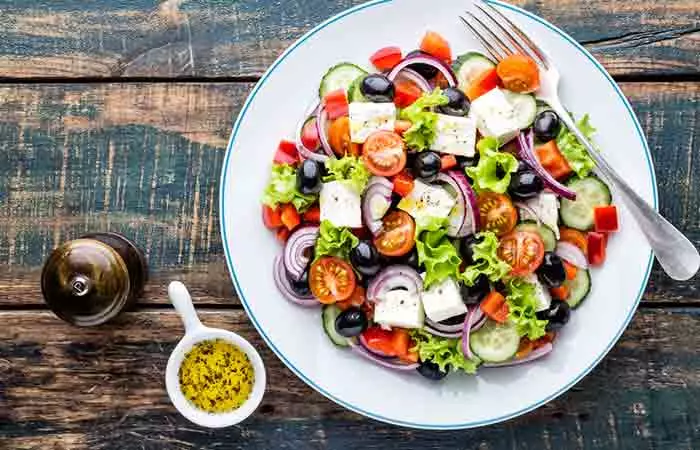
- Full-fat milk and yogurt. Full-fat versions are more nutritious and will help keep hunger at bay.
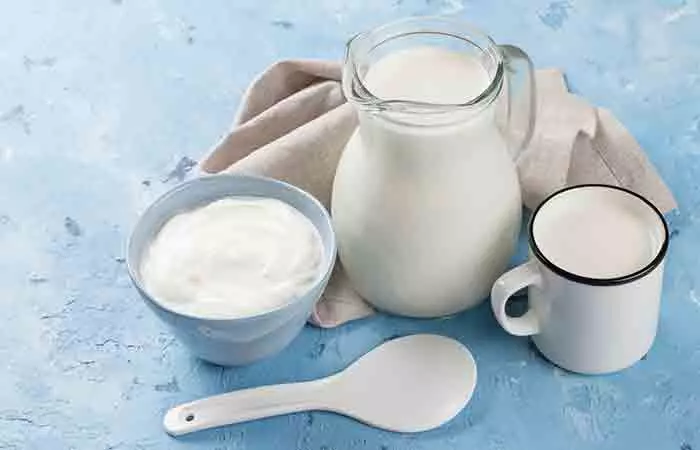
- Fruits and freshly pressed fruit juices. Make sure you don’t consume high GI foods like mangoes, pineapple, and grapes.
- Low-calorie salad dressing like olive oil, lime juice, salt, and pepper.
- Pre-cooked chicken and shrimps.
- Pre-washed veggies.
Here’s the list of foods you must avoid while on the 500-calorie diet.
Foods To Avoid On The 500-Calorie Diet
The foods listed below are unhealthy and have a high calorie count. So most diets, including high caloric ones such as the 1300 calorie diet plan, avoid them altogether.
- Processed foods like sausages and salami.
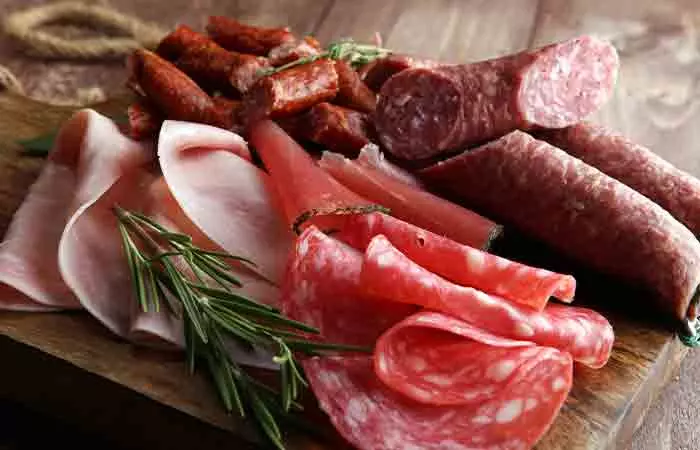
- Canned veggies, fruits, etc.
- Energy drinks, soda, and bottled fruit juices.
- Dried fruits.
- Sugary foods like cake, pastry, pancake, and candies.

Infographic: How To Suppress Hunger Pangs On A 500-Calorie Diet
Being on the 500-calorie diet is not easy, especially at the start. You are more likely to give in to your hunger cravings and end up binging. But thankfully, there are simple things you can do to tame those cravings.
Check out the below infographic to learn how to suppress hunger pangs while on the 500-calorie diet.
Some thing wrong with infographic shortcode. please verify shortcode syntaxIn today’s world, fitness and a healthy lifestyle are essential for maintaining optimal health. One of the most effective ways to achieve a healthy weight is through a balanced diet plan. Calorie counting and meal prep are good ways to manage your diet. By following a 500-calorie diet plan for weight loss, you can set and achieve your health goals. It helps boost metabolism and promotes fat oxidation, which may cause you to lose those stubborn pounds. This diet is usually recommended for those with obesity. People who have diabetes, heart and kidney diseases, or gout must avoid it. A sustainable diet should only be followed under the supervision of a doctor or a dietitian. Following it for more than a week may result in nutritional imbalances, weakened immunity, fatigue, weakness, hair loss, and gallstones. So, practice caution.
Frequently Asked Questions
How many pounds will I lose if I eat 500 calories a day?
Following a VLCD (500 calories per day) can help you reduce 15-20 pounds in a month.
How much weight can you lose per week on the 5:2 diet?
The 5:2 diet plan can help you lose 5-7 pounds in a week, depending on your body type.
What recipes can I include in a 500-calorie diet?
Foods that are loaded with low-calorie vegetables and fruits can be included in a 500-calorie diet. You can make vegetable soup, vegetable salad, fruit salad with low-fat yogurt, or a portion of grilled chicken or fish with grilled veggies for lunch or dinner to satisfy your hunger pangs.
Can I follow a 500-calorie diet for 3-4 weeks?
Following a very low-calorie diet (500 calories) for more than a week makes your body weak and lowers your immunity and productivity. Hence, it is important to consult your doctor and dietitian before following a VLCD for a long time.
What types of snacks can I eat on a 500 calorie diet?
Eat healthy and low calorie snacks like fruit bowls, trail mixes with dry fruits, nuts and seeds, cut veggies with hummus, and hard-boiled eggs.
Is it necessary to exercise while on a 500 calorie diet?
It is not necessary to exercise while on this diet. If you try to exercise you could feel exhausted because of your low calorie intake. Exercise after three to four hours of eating a full meal and consume a low-fat, moderate-protein snack 30 minutes before working out for an energy boost. You can also try the 1000 calorie diet if you do not want to miss workouts.
References
Articles on StyleCraze are backed by verified information from peer-reviewed and academic research papers, reputed organizations, research institutions, and medical associations to ensure accuracy and relevance. Read our editorial policy to learn more.
- WADDEN, THOMAS A., Albert J. Stunkard, and Kelly D. Brownell. “Very low calorie diets: their efficacy, safety, and future.” Annals of Internal Medicine 99.5 (1983): 675-684.
https://www.ncbi.nlm.nih.gov/books/NBK311324/ - Patterson, Ruth E., et al. “Intermittent fasting and human metabolic health.” Journal of the Academy of Nutrition and Dietetics 115.8 (2015): 1203-1212.
https://www.ncbi.nlm.nih.gov/pmc/articles/PMC4516560/ - Harris, Leanne, et al. “Intermittent fasting interventions for treatment of overweight and obesity in adults: a systematic review and meta-analysis.” JBI database of systematic reviews and implementation reports 16.2 (2018): 507-547.
https://pubmed.ncbi.nlm.nih.gov/29419624/ - Heilbronn, Leonie K., et al. “Alternate-day fasting in nonobese subjects: effects on body weight, body composition, and energy metabolism.” The American journal of clinical nutrition 81.1 (2005): 69-73.
https://pubmed.ncbi.nlm.nih.gov/15640462/ - Mariel Messer, Zoe McClure, Bethany Norton, Melanie Smart, Jake Linardon. “Using an app to count calories: Motives, perceptions, and connections to thinness- and muscularity-oriented disordered eating.” Eat Behav. 2025 Dec:43:101568.
https://pubmed.ncbi.nlm.nih.gov/34543856/ - Damms-Machado, Antje, Gesine Weser, and Stephan C. Bischoff. “Micronutrient deficiency in obese subjects undergoing low calorie diet.” Nutrition journal 11.1 (2012): 34.
https://www.ncbi.nlm.nih.gov/pmc/articles/PMC3404899/ - Willoughby, Darryn, Susan Hewlings, and Douglas Kalman. “Body composition changes in weight loss: strategies and supplementation for maintaining lean body mass, a brief review.” Nutrients 10.12 (2018): 1876.
https://www.ncbi.nlm.nih.gov/pmc/articles/PMC6315740/ - Gomez-Arbelaez, Diego, et al. “Resting metabolic rate of obese patients under very low calorie ketogenic diet.” Nutrition & metabolism 15.1 (2018): 18.
https://www.ncbi.nlm.nih.gov/pmc/articles/PMC5816424/ - Hunter, Gary R., Eric P. Plaisance, and Gordon Fisher. “Weight loss and bone mineral density.” Current opinion in endocrinology, diabetes, and obesity 21.5 (2014): 358.
https://www.ncbi.nlm.nih.gov/pmc/articles/PMC4217506/ - Jensen, Lars Bjørn, et al. “Bone mineral changes in obese women during a moderate weight loss with and without calcium supplementation.” Journal of Bone and Mineral Research 16.1 (2001): 141-147.
https://pubmed.ncbi.nlm.nih.gov/11149478/ - Villareal, Dennis T., et al. “Bone mineral density response to caloric restriction–induced weight loss or exercise-induced weight loss: a randomized controlled trial.” Archives of internal medicine 166.22 (2006): 2502-2510.
https://pubmed.ncbi.nlm.nih.gov/17159017/ - Johansson, Kari, et al. “Risk of symptomatic gallstones and cholecystectomy after a very-low-calorie diet or low-calorie diet in a commercial weight loss program: 1-year matched cohort study.” International journal of obesity 38.2 (2014): 279-284.
https://www.ncbi.nlm.nih.gov/pmc/articles/PMC3921672/ - Samra, Rania Abou. “Fats and satiety.” Fat Detection: Taste, Texture, and Post Ingestive Effects (2010).
https://www.ncbi.nlm.nih.gov/books/NBK53550/ - Damms-Machado, Antje, Gesine Weser, and Stephan C. Bischoff. “Micronutrient deficiency in obese subjects undergoing low calorie diet.” Nutrition journal 11.1 (2012): 34.
https://www.ncbi.nlm.nih.gov/pmc/articles/PMC3404899/ - “Preoperative Very Low-Calorie Diet Reduces Technical Difficulty During Laparoscopic Cholecystectomy in Obese Patients.” Surg Laparosc Endosc Percutan Tech 2016 Jun;26(3):226-9.
https://pubmed.ncbi.nlm.nih.gov/27258913/#:
- WADDEN, THOMAS A., Albert J. Stunkard, and Kelly D. Brownell. “Very low calorie diets: their efficacy, safety, and future.” Annals of Internal Medicine 99.5 (1983): 675-684.
- WADDEN, THOMAS A., Albert J. Stunkard, and Kelly D. Brownell. “Very low calorie diets: their efficacy, safety, and future.” Annals of Internal Medicine 99.5 (1983): 675-684.
https://www.ncbi.nlm.nih.gov/books/NBK311324/ - Patterson, Ruth E., et al. “Intermittent fasting and human metabolic health.” Journal of the Academy of Nutrition and Dietetics 115.8 (2015): 1203-1212.
https://www.ncbi.nlm.nih.gov/pmc/articles/PMC4516560/ - Harris, Leanne, et al. “Intermittent fasting interventions for treatment of overweight and obesity in adults: a systematic review and meta-analysis.” JBI database of systematic reviews and implementation reports 16.2 (2018): 507-547.
https://pubmed.ncbi.nlm.nih.gov/29419624/ - Heilbronn, Leonie K., et al. “Alternate-day fasting in nonobese subjects: effects on body weight, body composition, and energy metabolism.” The American journal of clinical nutrition 81.1 (2005): 69-73.
https://pubmed.ncbi.nlm.nih.gov/15640462/ - Mariel Messer, Zoe McClure, Bethany Norton, Melanie Smart, Jake Linardon. “Using an app to count calories: Motives, perceptions, and connections to thinness- and muscularity-oriented disordered eating.” Eat Behav. 2025 Dec:43:101568.
https://pubmed.ncbi.nlm.nih.gov/34543856/ - Damms-Machado, Antje, Gesine Weser, and Stephan C. Bischoff. “Micronutrient deficiency in obese subjects undergoing low calorie diet.” Nutrition journal 11.1 (2012): 34.
https://www.ncbi.nlm.nih.gov/pmc/articles/PMC3404899/ - Willoughby, Darryn, Susan Hewlings, and Douglas Kalman. “Body composition changes in weight loss: strategies and supplementation for maintaining lean body mass, a brief review.” Nutrients 10.12 (2018): 1876.
https://www.ncbi.nlm.nih.gov/pmc/articles/PMC6315740/ - Gomez-Arbelaez, Diego, et al. “Resting metabolic rate of obese patients under very low calorie ketogenic diet.” Nutrition & metabolism 15.1 (2018): 18.
https://www.ncbi.nlm.nih.gov/pmc/articles/PMC5816424/ - Hunter, Gary R., Eric P. Plaisance, and Gordon Fisher. “Weight loss and bone mineral density.” Current opinion in endocrinology, diabetes, and obesity 21.5 (2014): 358.
https://www.ncbi.nlm.nih.gov/pmc/articles/PMC4217506/ - Jensen, Lars Bjørn, et al. “Bone mineral changes in obese women during a moderate weight loss with and without calcium supplementation.” Journal of Bone and Mineral Research 16.1 (2001): 141-147.
https://pubmed.ncbi.nlm.nih.gov/11149478/ - Villareal, Dennis T., et al. “Bone mineral density response to caloric restriction–induced weight loss or exercise-induced weight loss: a randomized controlled trial.” Archives of internal medicine 166.22 (2006): 2502-2510.
https://pubmed.ncbi.nlm.nih.gov/17159017/ - Johansson, Kari, et al. “Risk of symptomatic gallstones and cholecystectomy after a very-low-calorie diet or low-calorie diet in a commercial weight loss program: 1-year matched cohort study.” International journal of obesity 38.2 (2014): 279-284.
https://www.ncbi.nlm.nih.gov/pmc/articles/PMC3921672/ - Samra, Rania Abou. “Fats and satiety.” Fat Detection: Taste, Texture, and Post Ingestive Effects (2010).
https://www.ncbi.nlm.nih.gov/books/NBK53550/ - Damms-Machado, Antje, Gesine Weser, and Stephan C. Bischoff. “Micronutrient deficiency in obese subjects undergoing low calorie diet.” Nutrition journal 11.1 (2012): 34.
https://www.ncbi.nlm.nih.gov/pmc/articles/PMC3404899/ - “Preoperative Very Low-Calorie Diet Reduces Technical Difficulty During Laparoscopic Cholecystectomy in Obese Patients.” Surg Laparosc Endosc Percutan Tech 2016 Jun;26(3):226-9.
https://pubmed.ncbi.nlm.nih.gov/27258913/#:
Read full bio of Merlin Annie Raj
- Jesse Feder, RDN/LDN, is a Clinical Dietitian at the Memorial Regional Hospital. He is also a certified by the American College of Sports Medicine as a personal trainer (ACSM-CPT) and the National Strength and Conditioning Association as a Certified Strength and Conditioning Specialist (NSCA-CSCS).
 Jesse Feder, RDN/LDN, is a Clinical Dietitian at the Memorial Regional Hospital. He is also a certified by the American College of Sports Medicine as a personal trainer (ACSM-CPT) and the National Strength and Conditioning Association as a Certified Strength and Conditioning Specialist (NSCA-CSCS).
Jesse Feder, RDN/LDN, is a Clinical Dietitian at the Memorial Regional Hospital. He is also a certified by the American College of Sports Medicine as a personal trainer (ACSM-CPT) and the National Strength and Conditioning Association as a Certified Strength and Conditioning Specialist (NSCA-CSCS).
Read full bio of Priyanka Sadhukhan
Read full bio of Arshiya Syeda
Read full bio of Himanshi Mahajan






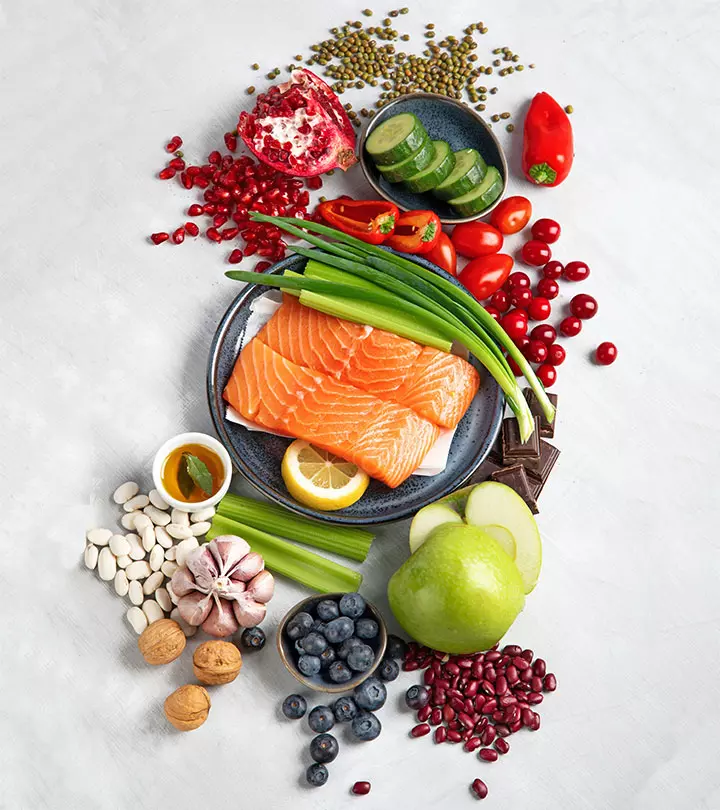
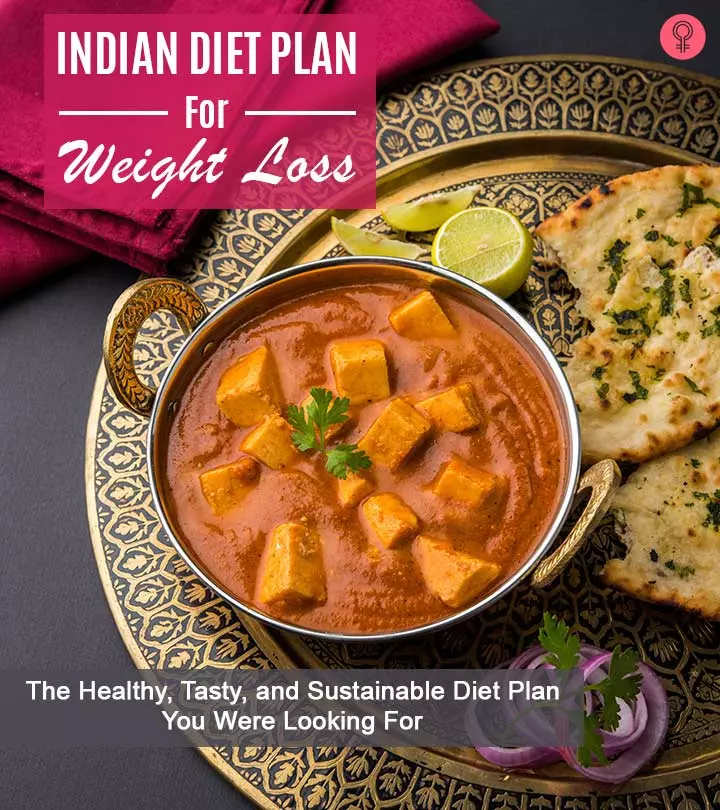
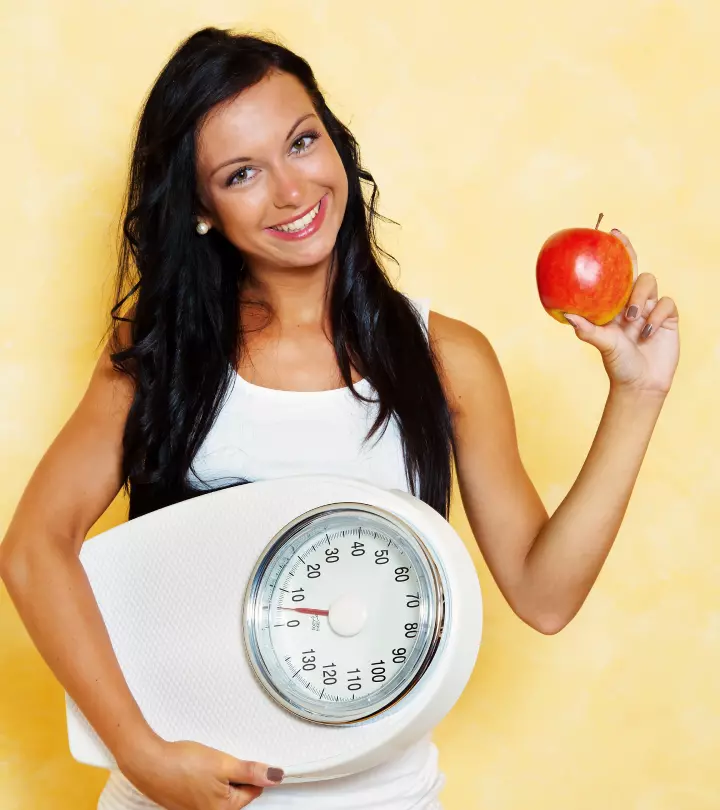
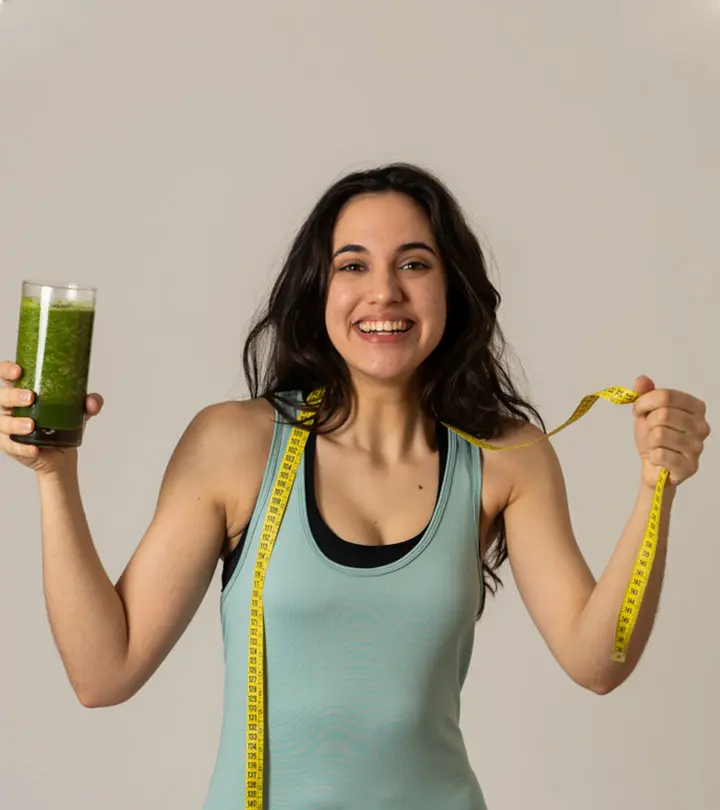
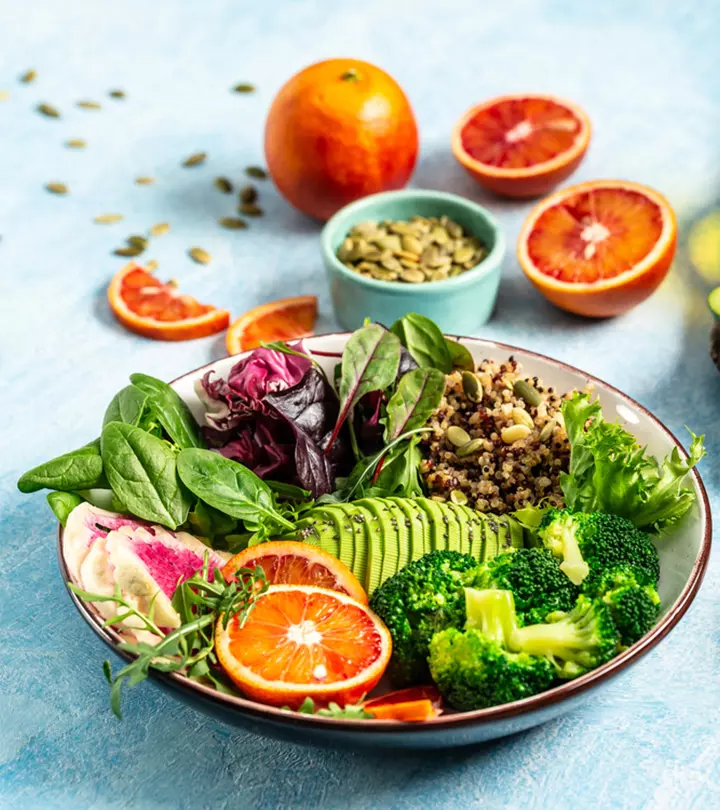
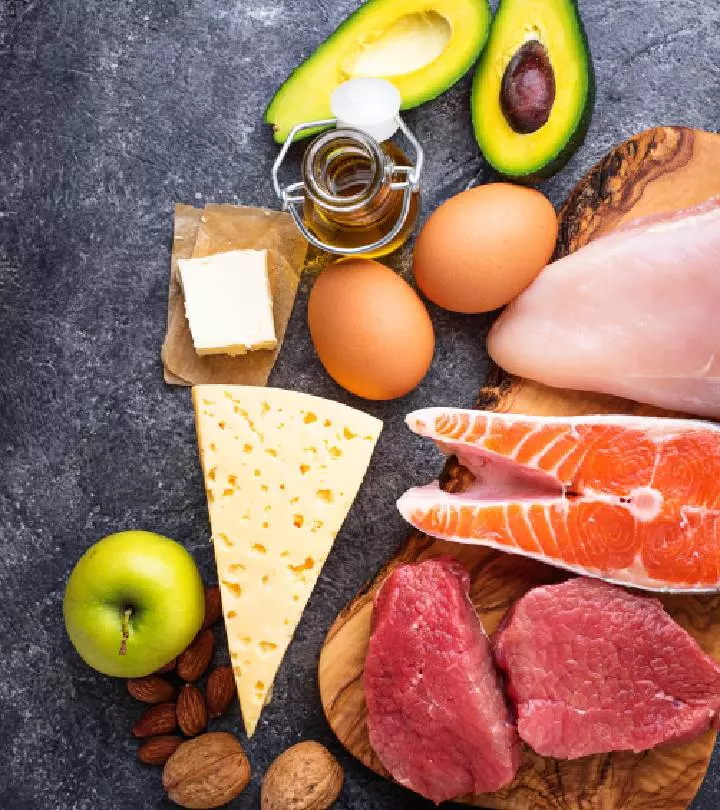
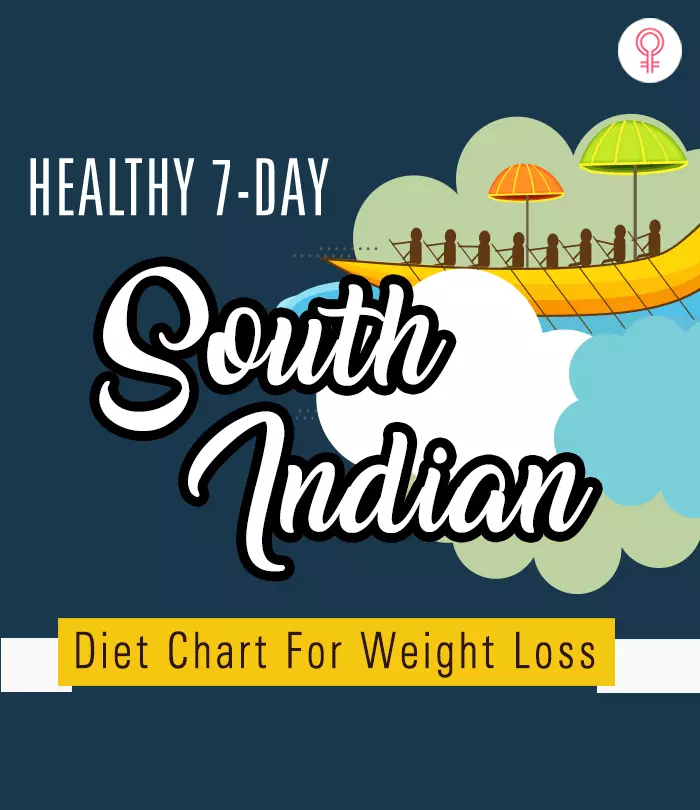

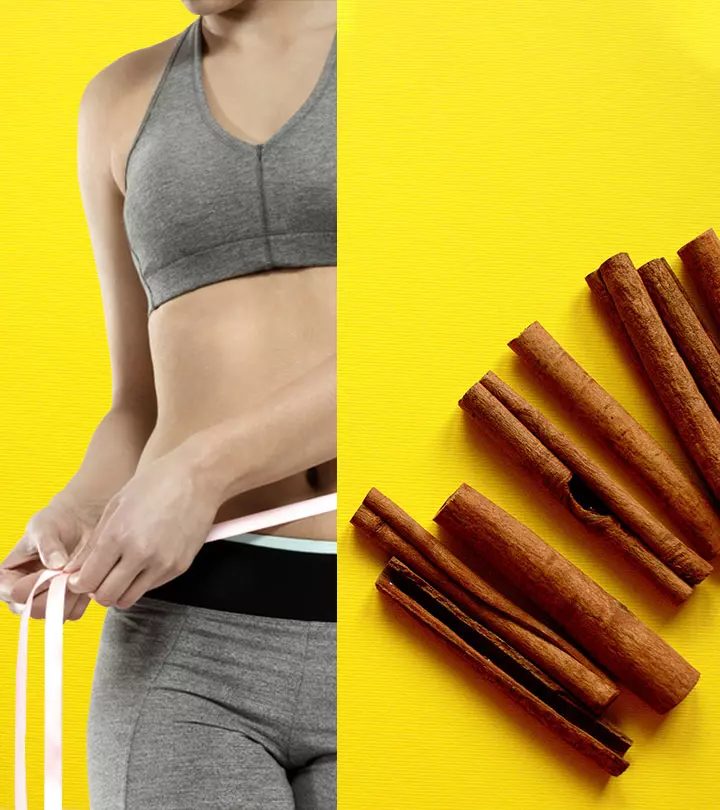

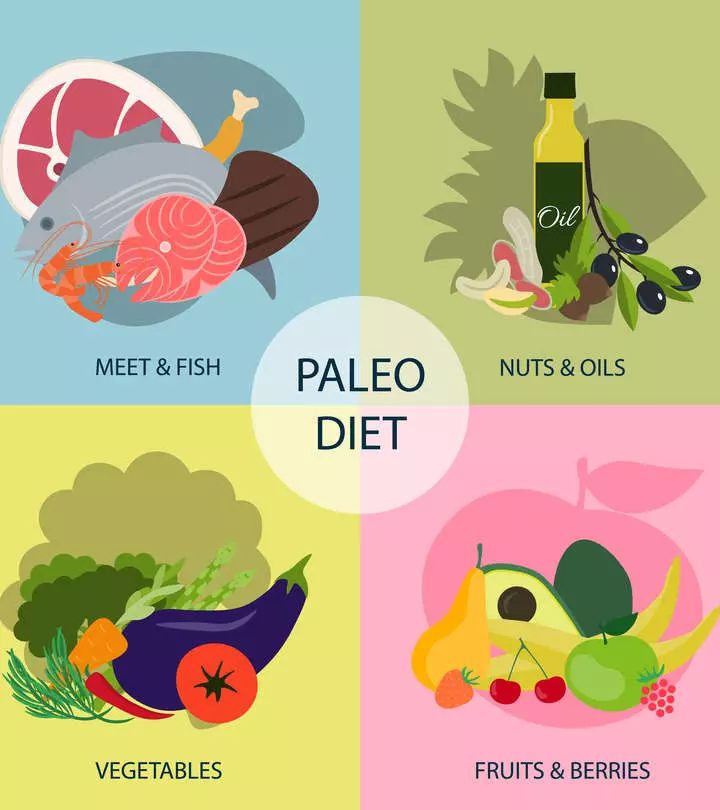
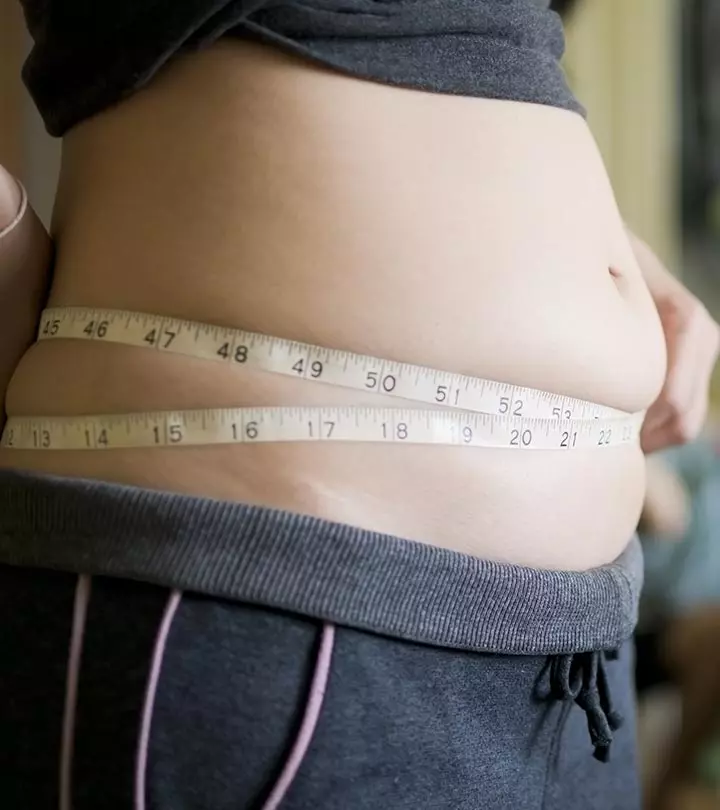

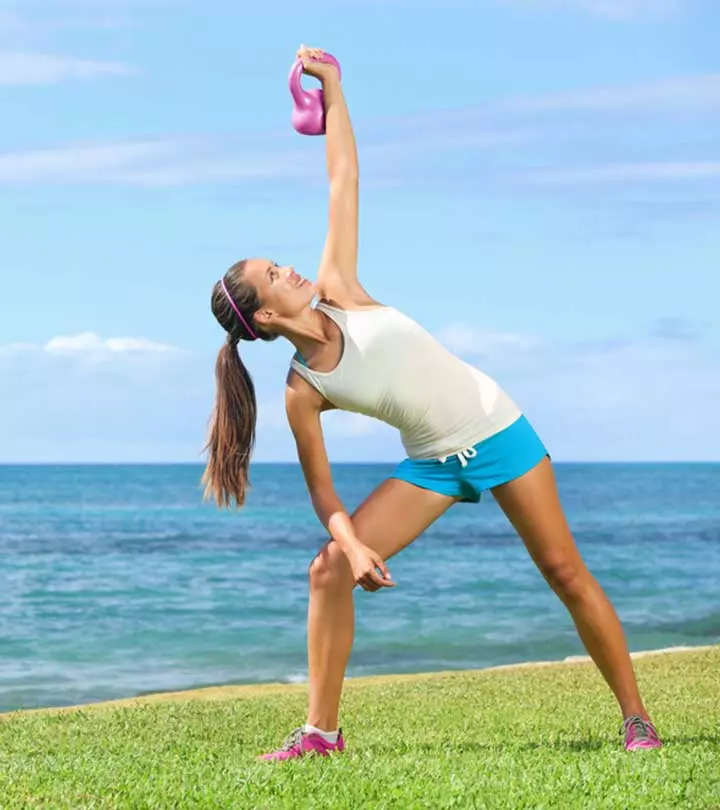

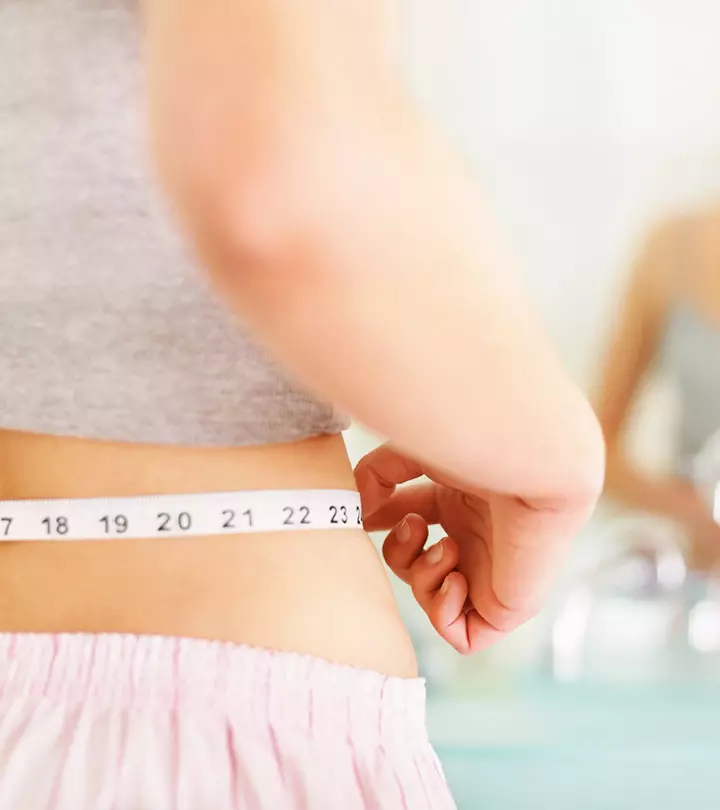

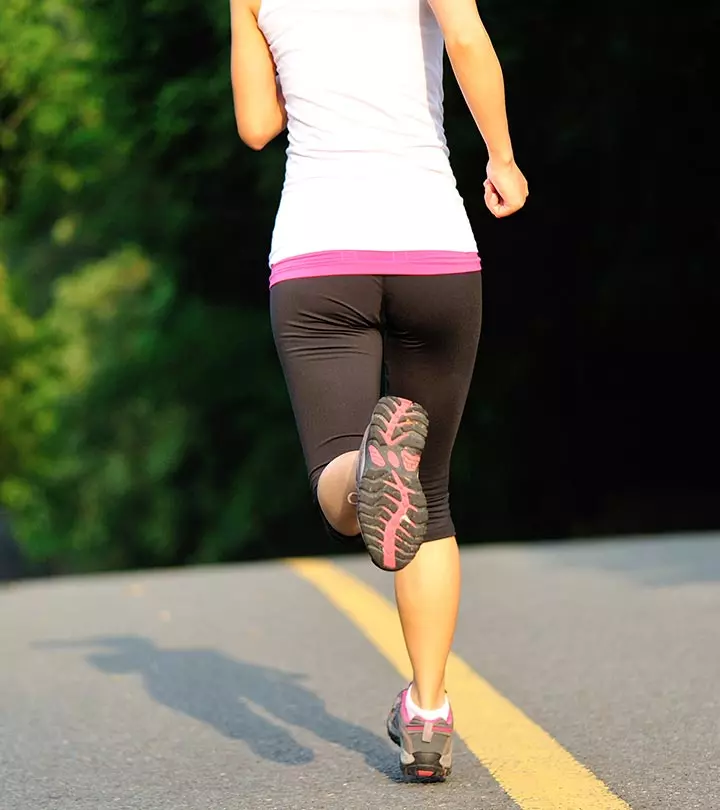


Community Experiences
Join the conversation and become a part of our empowering community! Share your stories, experiences, and insights to connect with other beauty, lifestyle, and health enthusiasts.